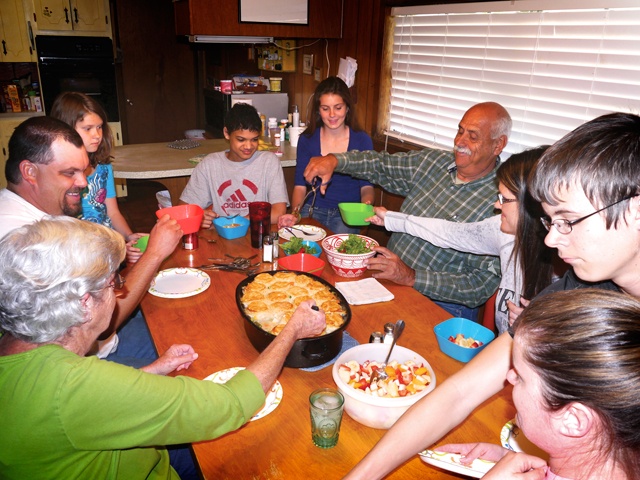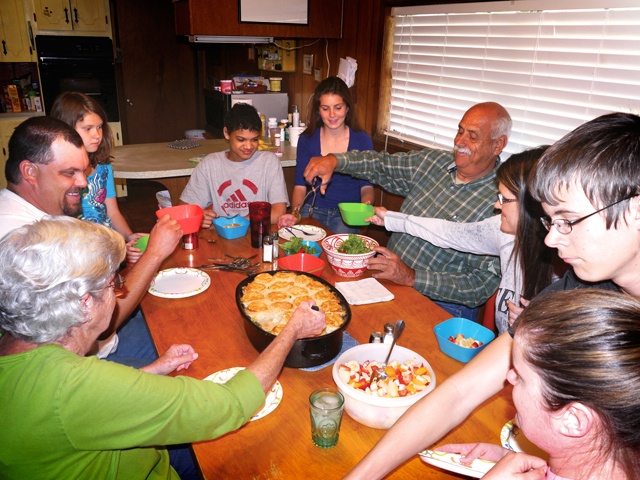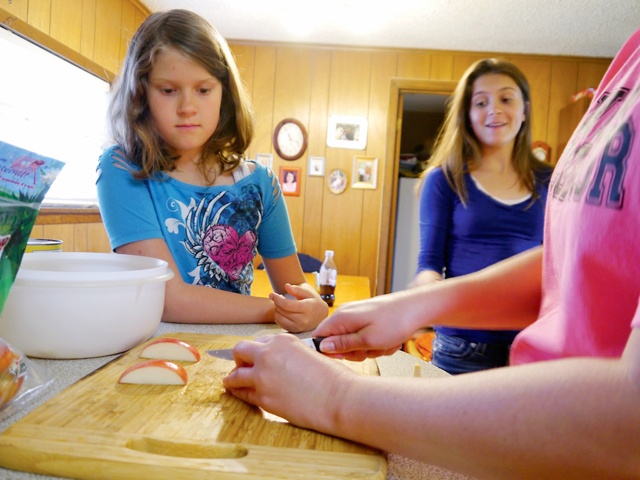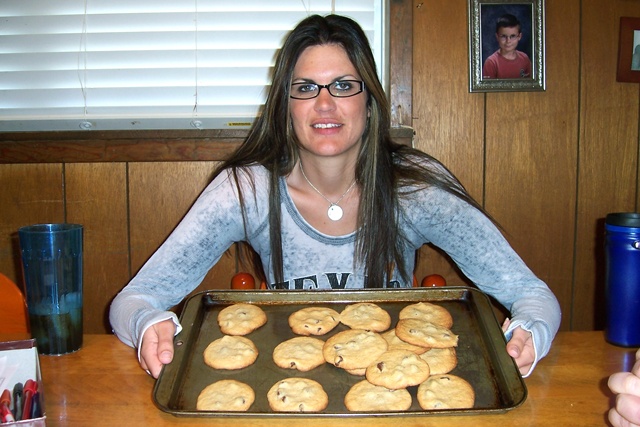Football practice. Band rehearsals. Staff meetings. Overtime. So many things conspire to deprive us of the old-fashioned pleasure of the sit-down family dinner. And some experts warn that we might pay a high price for our frenetic lifestyles and launch our kids on a collision course with obesity or worse—smoking, alcohol abuse, depression. Who’d have dreamed that choking down your vegetables and having to ask to be excused from the table would pay such dividends?
“Medical research has shown that children who have regular meals with their families have healthier relationships, do better in school, and are more grounded and well-rounded,” said Dr. Kathy Kimmey, who practices community internal medicine at Scott & White Hospital in Temple.
“Some of my fondest childhood memories involved family sit-down evening meals with my sisters and parents. My grandmother cooked a feast every Sunday after church, and we still talk about those good times.”
My own large extended family has found a solution to the looming health risks of separate meals and fast food. Me.
Our two children and their families work long hours and arrive home from their distant job locations with our four grandchildren exhausted, as we did when we were young. But we have an advantage many other families lack—all of us live together, albeit in three separate houses, on a large family farm near McGregor, and the famished multitudes can gather around a single crowded table to take sustenance together.
The head chef at these weeknight gatherings is me, and I think I remember volunteering to take over the food service on school nights some years ago. It just made sense to avoid task duplication in all three houses. Retired after many years of teaching history to sixth-graders, I now work at home on a schedule that is, for the most part, adjustable.
Lest you think that I’m an abused old lady chained to the stove or an aproned June Cleaver bent on martyrdom, I should admit that I seldom spend more time preparing family dinners for nine people than it takes to watch an episode of “Diners, Drive-Ins and Dives.” A huge pot of chili or a turkey roaster full of chicken potpie fills the hollow legs of five adults and four children, two of them teenage boys. One of my most valuable possessions is a supersized slow cooker, which requires an early morning effort but only a quick stir at suppertime.
Is there a payoff for me? You bet there is. When they all come trooping in the door, I am the first person they seek out. “What’s for dinner, Gram?” they ask. I’ve finally taught them to precede this question with at least a brief “Hi, Gram.” If the menu involves something unidentifiable that’s in the oven covered with tinfoil, I make them pay for information with a kiss on the cheek.
Because we all sit down at the table together, I know things that less fortunate grandmas may not know. I know that Noah desperately wants to be quarterback for the New Orleans Saints, although at 13 he’s 5 feet 8 inches tall but weighs only 110 pounds. Can you say ‘beanpole?’ I know that Tyler’s face turns red at the mere mention of the name Elizabeth. I know that Hannah plans to try out for the equestrian team at Texas A&M University. (Her beloved 24-year-old horse might have something to say about this.) I know the name of our daughter, Lindsay’s, most challenging third-grade student. Not every mealtime conversation is rife with future significance, but the things that prey on the mind have an opportunity to come out around the dinner table.
A lifelong gardener, I’ve helped my grandchildren develop a taste for fresh food. In the case of Hannah and Katie, this has taken the form of a homemade salsa addiction. They are so enamored with making their own salsa that they help with planting tomatoes and peppers and poking the hundreds of thread-like onion sets into the ground, a job that makes my back and knees complain for days. Their fresh salsa is often the featured appetizer at dinnertime.
Of course, this family-feeding operation doesn’t always work perfectly. Katie, for example, hates pasta, and Lindsay won’t eat anything that has spent its early life underwater. But I refuse to take on the role of food police, because I know that Katie would sit in front of an untouched plate of spaghetti until starvation took her. If they don’t like what we’re having, it’s up to them to find something else in the bowels of the refrigerator. And, yes, I do occasionally grow my own penicillin back there.
When dinner is over, someone else clears the table and washes dishes, although homework can trump this, and I have a chronic case of dishpan hands. Years ago I unashamedly made the switch to paper plates. On weekends our son, Justin, the grill king, or our daughter-in-law, Stephanie, cooks for all of us. Grandpa, who has the temperament of a spoiled pastry chef in a gourmet restaurant, refuses to expand his role beyond breakfast, a meal at which he is the undisputed master.
When courage runs low and I can’t think of a single thing to cook, I cheat and raid the freezer for a box of frozen pizzas. I think this still counts, as long as we sit down together at the table. It’s the family support that’s most important. Mealtime is when kids learn to be civilized members of our culture. Next year, Tyler will take driver’s ed and gain a new mobility, and the others will follow in the blink of an eye.
Chopping vegetables and stirring up a stew seems like a small price to pay for helping to hold them close a little longer.
——————–
Martha Deeringer is a regular contributor and a member of Heart of Texas Electric Cooperative





